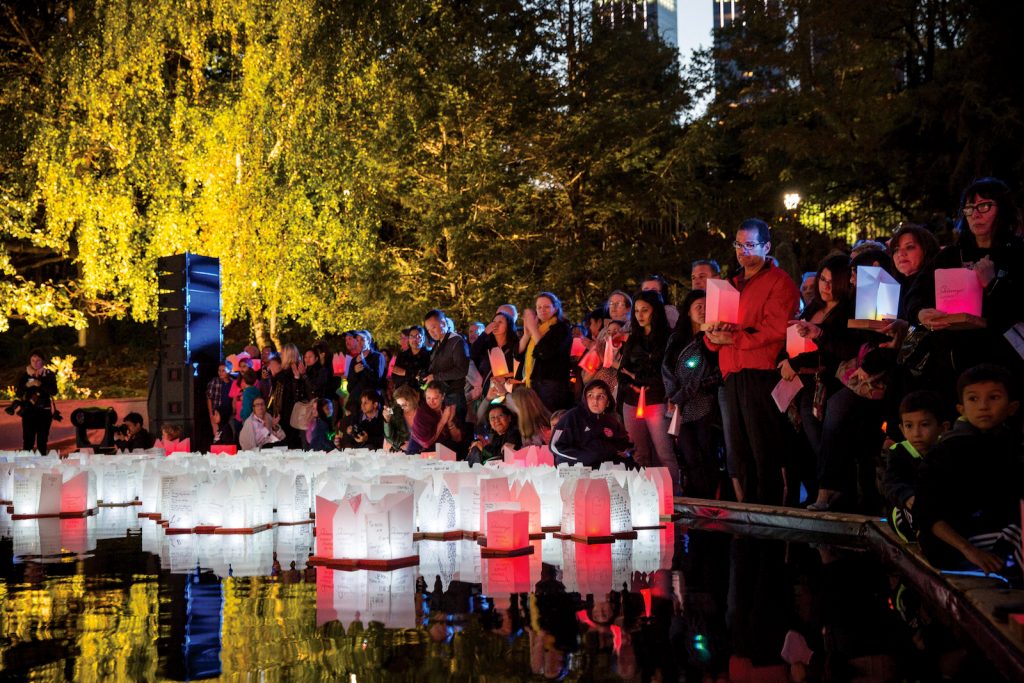More than 4,000 people were on hand September 22 as a thousand points of light—actually, 2,200 candle-lit paper lanterns bearing personal messages—were set afloat on a reflecting pool in New York City’s Central Park. “Be a Light for Peace,” a variation on a traditional Japanese ceremony honoring the dead, paid tribute to those who have dedicated their lives to creating a more harmonious world.
Shinnyo-en, the international Buddhist community that organized the event, has conducted lantern-floating ceremonies across the globe, but this was their first in New York. It was timed to coincide with the International Day of Peace, September 21, and the opening of the United Nations General Assembly’s General Debate on September 24.
With some one million followers, Shinnyo-en brings the teachings and practices of the Daigo lineage of Shingon Buddhism to a broad lay audience. Shinso Ito, head priest of Shinnyo-en, drew on multiple cultural and religious inspirations for her contemporary interpretation of the ancient lantern ceremony. The festivities featured performers representing Buddhist, Islamic, Hindu, and Christian traditions, ranging from a youth gospel choir, Junior Fountain & God’s Generation, to Nataya Dance Theater, an Indian classical dance troupe. Along with Shinnyo-en clergy, speakers included Zainab Hawa Bangura, the UN Secretary–General’s Special Representative on Sexual Violence in Conflict; Lakshmi Puri, Deputy Executive Director of UN Women, a global rights organization; Anne-Marie Goetz, Chief Advisor on Peace and Security for UN Women; and Reverend Chloe Breyer, Executive Director of the Interfaith Center of New York.
The lantern-floating ceremony underscores Shinnyo-en’s message that peacemaking efforts are not reserved for UN deliberations and areas of conflict. We all have the power to be peacemakers every day—at home, in our neighborhoods, and at work.
–Joan Duncan Oliver, Editor-at-large
♦
Watch the Tricycle Original Short “The Shinnyo Lantern Floating for Peace.”
Thank you for subscribing to Tricycle! As a nonprofit, we depend on readers like you to keep Buddhist teachings and practices widely available.
